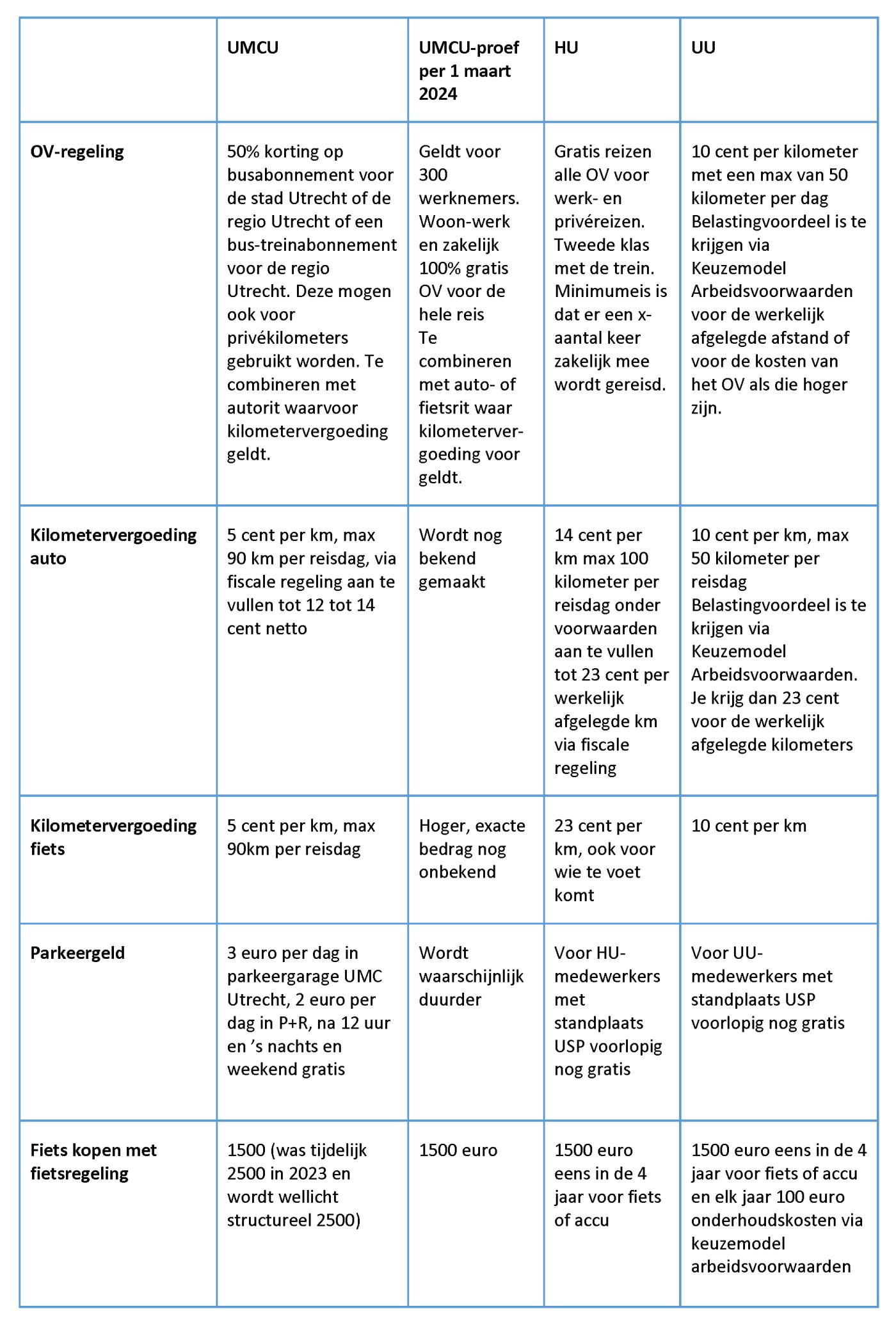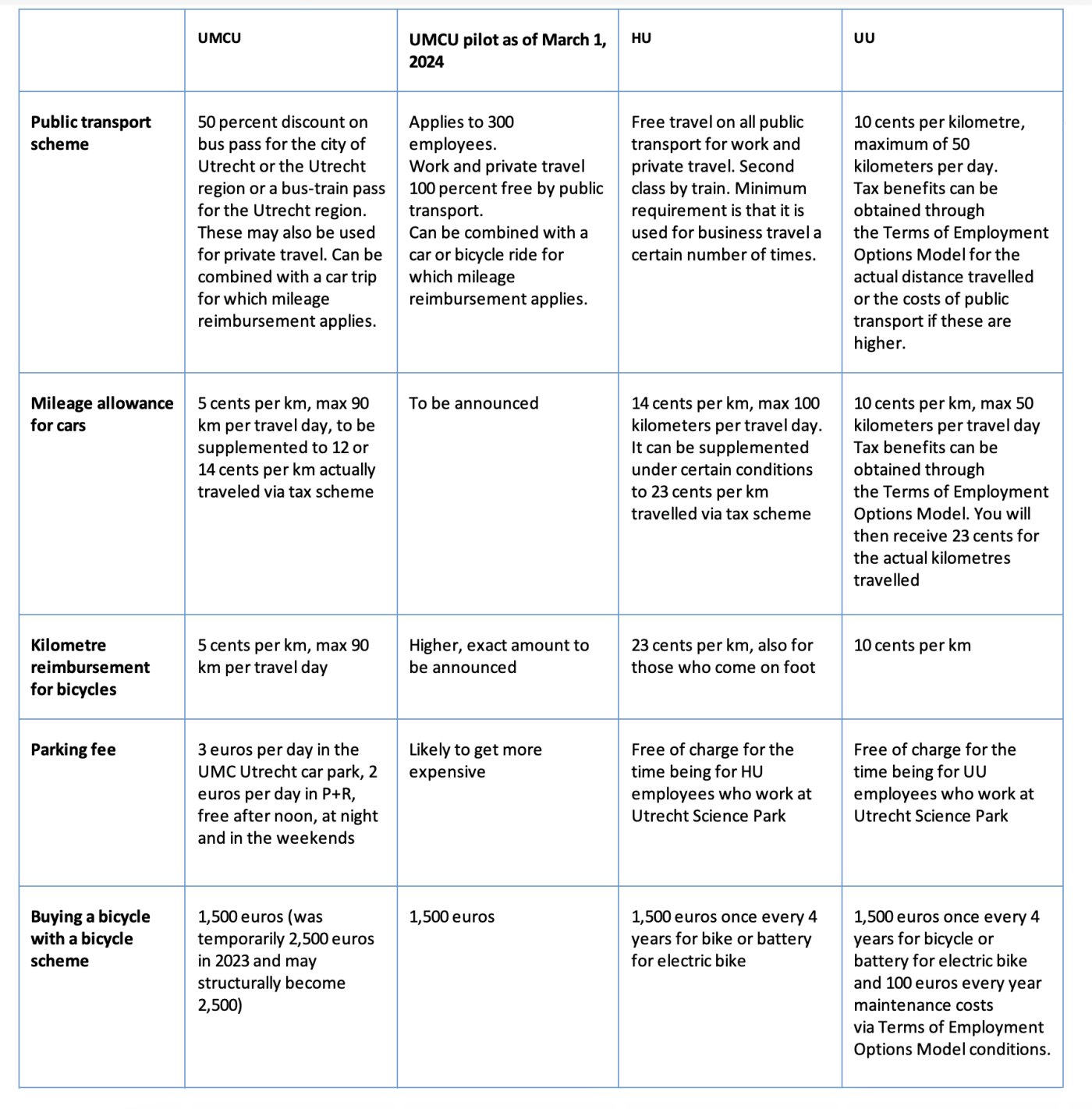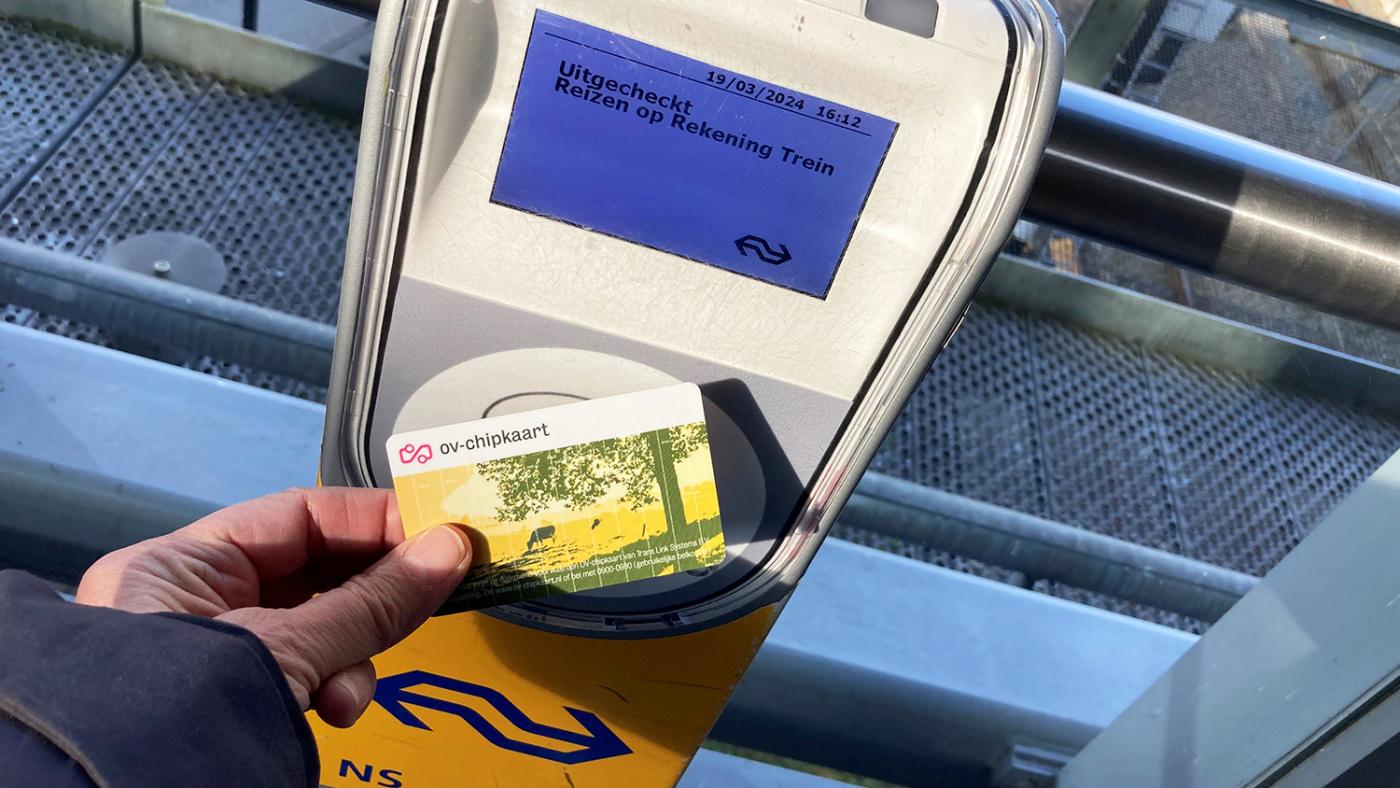Or at least a more generous travel allowance
Wanted: free public transport card for all UU employees
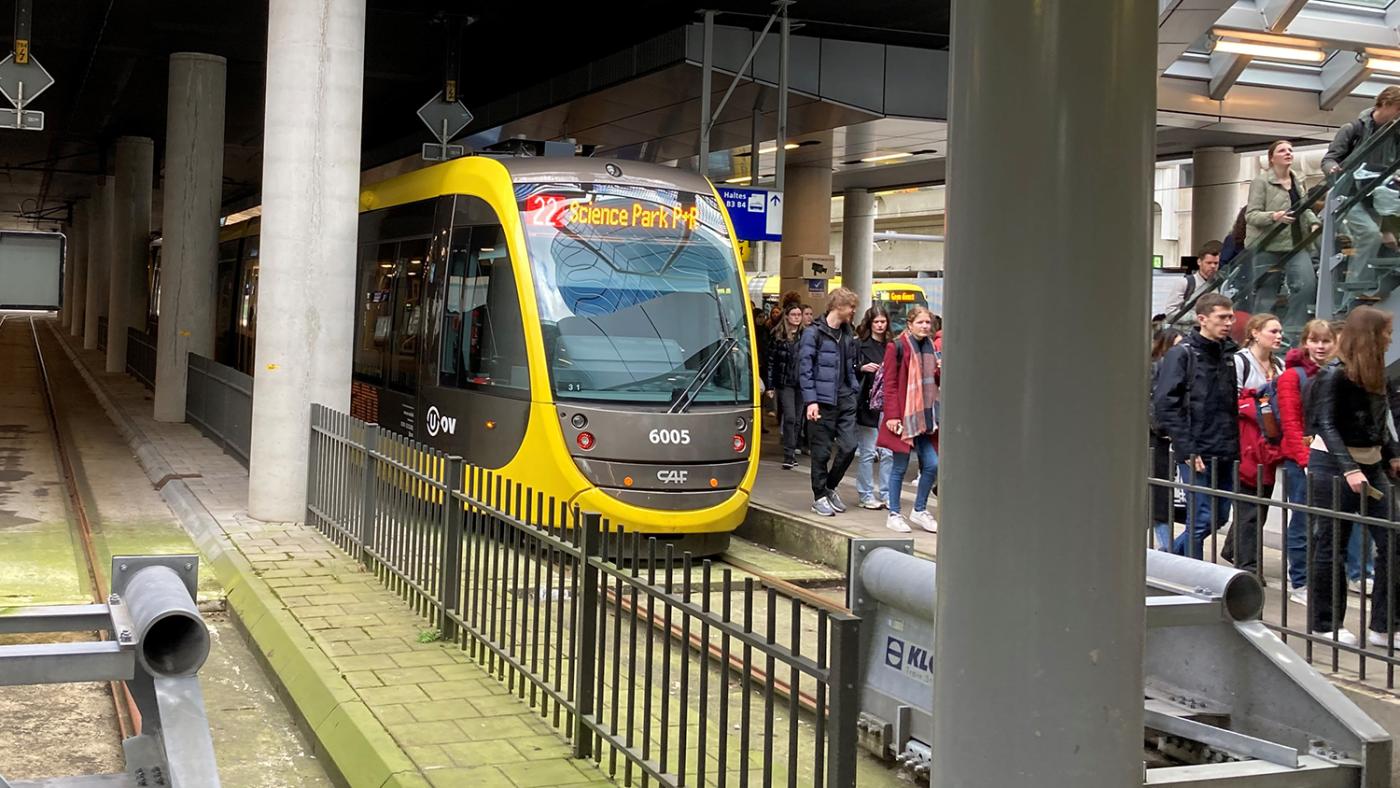
It's not just a few employees who find the university's current travel allowance meagre. The consultative body of the administrative workers has expressed the same concern as well, as have trade unions and employees on the Intranet. The council hopes that partners at Utrecht Science Park will help achieve a better arrangement.
Since January 1st, employees of the University of Applied Sciences (HU) have been able to opt for a public transport card that allows them to travel for free in second-class train wagons and all other forms of public transport, both for work and private life. The scheme has been allowed by the tax authorities since the beginning of the year.
UMC Utrecht has had a more generous public transport scheme than the university for quite some time. The medical centre has just started a trial in which three hundred employees received a free public transport card to go to work for free from anywhere in the country. As of october, according to their new collective labour agreement, all employees can make use of such a card.
Utrecht University reimburses 10 cents per kilometre, regardless of whether the employee travels the journey by bicycle, car or public transport. The maximum distance reimbursed is 25 kilometres each way, i.e. 50 kilometres per day. However, this can be supplemented to up to 23 cents for the entire distance, through the Terms of Employment Options Model. If one travels by public transport and incurs more costs, they can enter these costs in the Model.
However, supplementation through the Options Model does not come from the university. The reimbursement is deducted from the employee's holiday allowance or thirteenth month, which means the employee will pay less tax.

Encouraging people to travel by public transport
Although the administrative workers' council is not responsible for the university’s travel allowance, its chair, Bobby Baidjnath Misier, would like to discuss the subject. According to him, he's not the only one wondering why UU doesn’t offer a public transport card like HU and UMC Utrecht do. Other employees have asked the same question on the Intranet as well (link only available to those with a Solis ID, Ed.). Not only would such a card make UU a more attractive employer, but it would make the university more sustainable. If more people would go to work by public transport instead of by car, UU would be reducing CO2 emissions, argues Baidjnath Misier. As of July, institutions with more than a hundred employees will have to calculate these emissions, which will be counted towards UU's carbon footprint from 2025 onwards.
According to Baidjnath Misier, a public transport card allowing workers to travel for free would incentivise them to take public transport instead of driving, not to mention it would reduce traffic jams and relieve parking pressure. UU has been striving to discourage car use and one of the ways it will do so is by increasing parking fees soon. It is not yet known how much parking will cost. “This is one of the ways UU can discourage car use, but we think there is not enough of an investment return to make employees switch to public transport.”
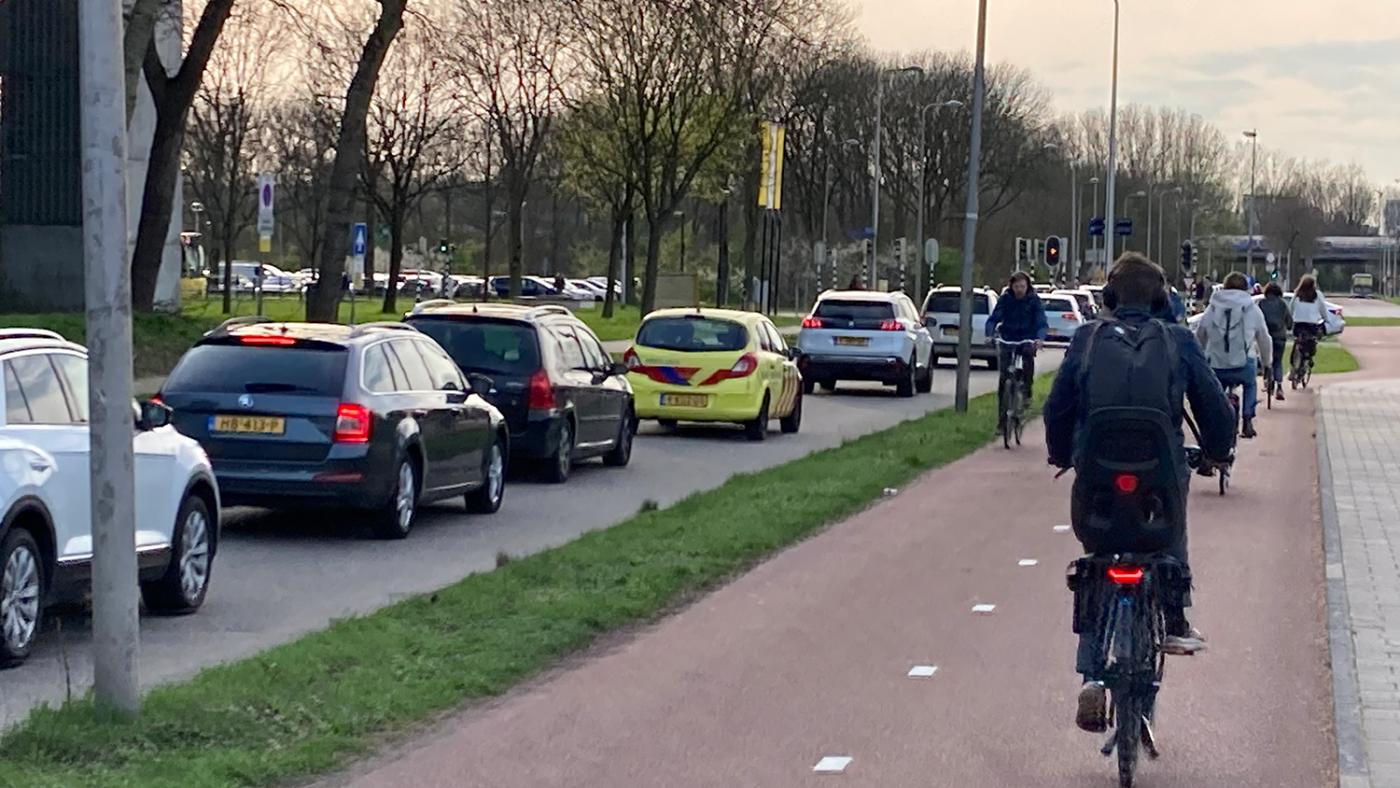
Another argument in favour of a free public transport card is that it would reduce red tape, according to Baidjnath Misier. “Many administrative employees are allowed to work from home half of the time. To receive a travel allowance and a working-from-home allowance, you must first determine how many days a week you will come to the office. If you use public transport and buy individual tickets, and you enter all these costs in the Options Model, you must include travel receipts. If you don’t have a card that only allows you to travel on a given route, you have to keep receipts every month. It’s an administrative burden.”
Free public transport in the new CAO
The trade unions are renegotiating the travel allowance. According to Paul ter Veld, a spokesperson for the Local Consultation (in Dutch, Lokaal Overleg), the body in which unions discuss the terms of employment with the Executive Board and the HR director, public transport is a recurrent topic in meetings. “I think it’s a good idea for the university to give a public transport card to its employees. It would make UU a more attractive employer and also offer administrative advantages. But, to be honest, I wonder if that will suffice to get people out of their cars. Based on my experience, those who drive to work are either inveterate drivers or live somewhere where public transport is poor because the government made cuts in the budget. You probably won’t be able to get those people to use public transport, even with an allowance.”
In this case, shouldn’t there be a higher travel allowance for those who cannot come to work without a car? According to the tax authorities, an employer is allowed a maximum allowance of 23 cents per kilometre tax-free, up to 25 kilometres one way or 50 kilometres a day. “It could be higher, that's right. The university is frugal in this respect, but the money spent on allowances is taken away from the university's total budget. One solution would be to take a more differentiated look at compensation. For example, people at lower pay scales would get a higher allowance. Alternatively, UU could consider compensating employees who cannot come to De Uithof by public transport.”
Ter Veld continues: "Ideally, the unions would like to include a new travel allowance arrangement in the next collective labour agreement, for which negotiations started this month. “First of all, we want travel by public transport to be fully reimbursed by universities. In addition, we want national agreements on the mileage allowance. Currently, each university has its own regulations. Some universities pay less than UU, while others pay more."
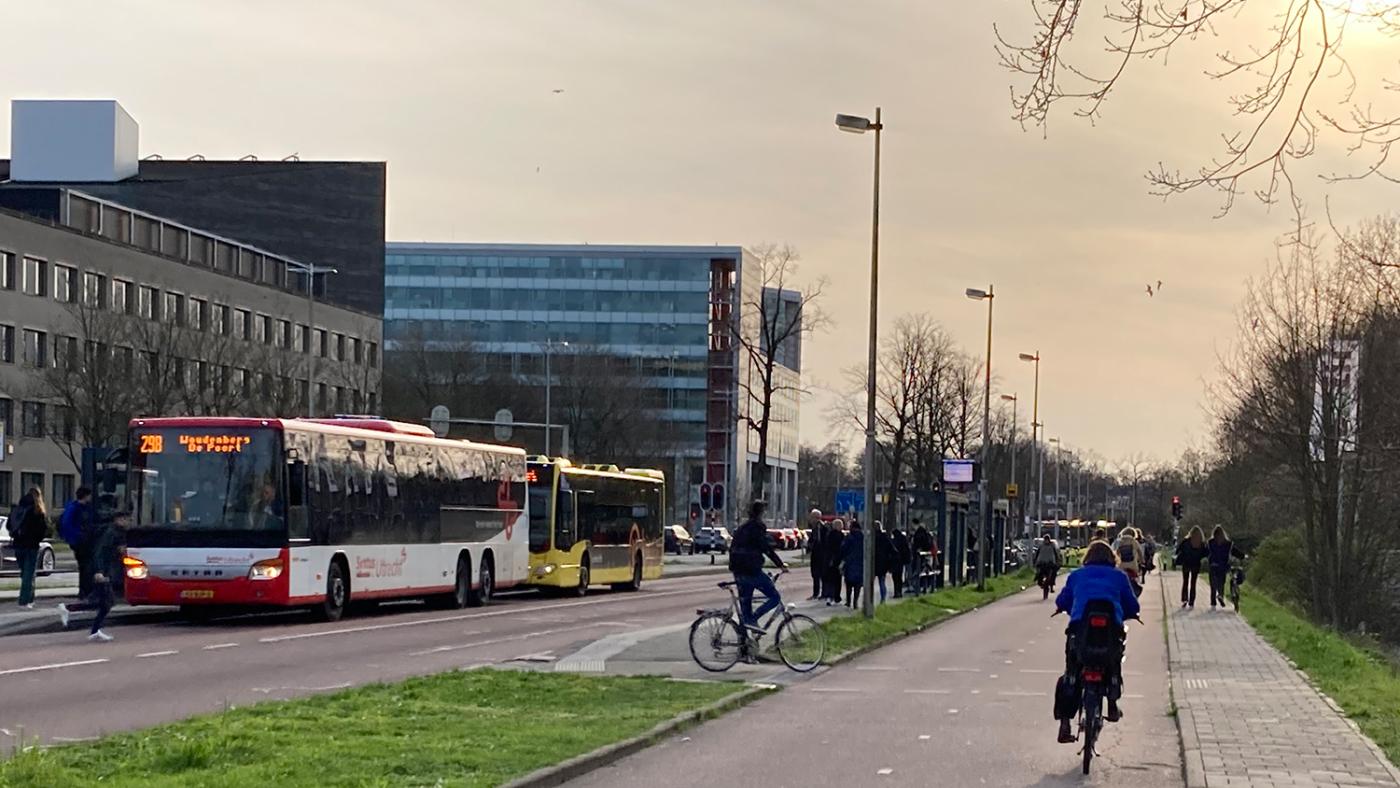
Remaining an attractive employer
Utrecht University is considering a travel expenses scheme, states the Director of Human Resources, Aletta Huizenga. This arrangement would have to be made according to the way each employee goes to work. The latest measurement showed that 60 percent of employees come to Utrecht Science Park by bike. “About 17 percent of staff members come to USP by public transport and 21 percent by car. A public transport card may not be the best solution for everyone.”
In a few months, it will become clear whether and how much UU employees will have to pay for parking. Paid parking was supposed to have been introduced in 2019, but the chosen technique to collect parking fees raised questions about privacy. Paid parking was put on hold after the travel allowance had already been increased from 6 cents per kilometre to 10 cents per kilometre to compensate for parking fees. Then came the pandemic, Huizenga recollects.
It’s by no means a simple matter, she admits. Not everyone can or wants to live within cycling distance of the university, but on the other hand, a more generous travel allowance could ensure that the university remains an attractive employer, especially considering the current labour shortage and the housing market. According to Huizenga, all these issues play a role in determining the new travel policy and the parking fee.
The schedule below shows the travel allowance of the Utrecht University Medical Center (UMCU), Utrecht University of Applied Sciences (HU) and Utrecht University (UU). The trial that started at UMCU in March will apply to all UMCU employees as of October. At that time, the new collective labour agreement (cao) will be in effect. You can find the Englisch version underneath the Dutch version.
